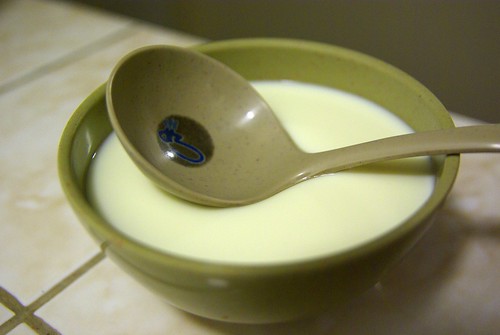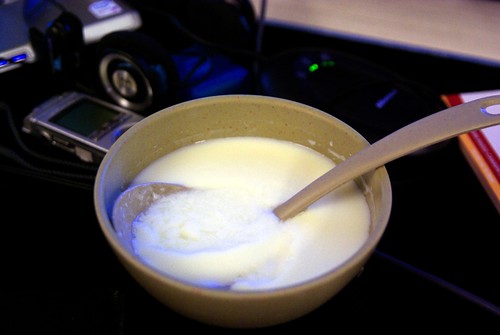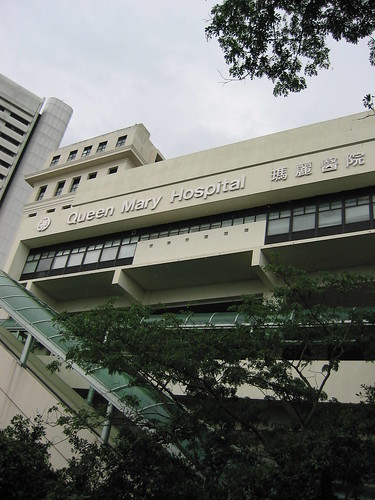Following my experience in a dessert place in Markham (dessert houses in Montreal are rare to inexistent), I became obsessed with the idea of making one day my own ginger milk curd, or “keung zap zong nai” in Cantonese (薑汁撞奶). If the number of YouTube videos of people is a clue, then ginger curd is … Continue reading “Ginger milk curd 薑汁撞奶”
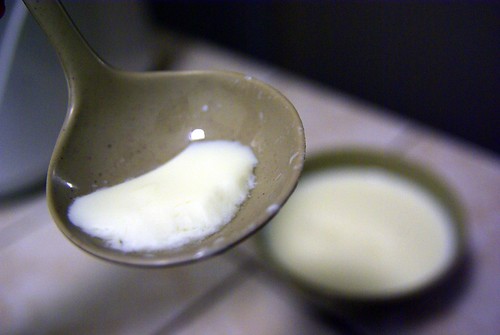
Following my experience in a dessert place in Markham (dessert houses in Montreal are rare to inexistent), I became obsessed with the idea of making one day my own ginger milk curd, or “keung zap zong nai” in Cantonese (薑汁撞奶). If the number of YouTube videos of people is a clue, then ginger curd is something that is definitely fun and intriguing to make.
Why that? Perhaps because it defies everyday conceptions. The principle of ginger curd is to take ginger juice, a mixture full of enzymes, and mix it to some warm sweetened milk. It’s supposed to react and make the milk curd, just like for tofu or cheese.
In 2006, a bunch of Hong Kong high school students’ science fair project won a prize and their presentation (PDF) became a hit on Google searches.
Ginger milk curd is a speciality of Guangdong, said to actually be from the locale of Panyu, nearby the provincial capital city of Guangdong and maybe where one of my grandmothers came from. It’s a staple dessert in Cantonese style (so, Hong Kong style) dessert houses all over the world. It is not known whether Montreal has a place that serves ginger milk curd, as not even the place I went to in Toronto made their own properly (they cheated by adding eggs, and it had the consistency of flan).
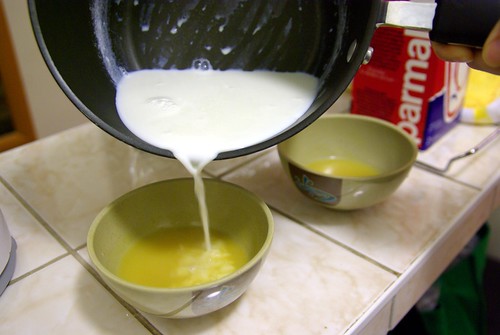
The recipe is rather simple, but just like any chemical experience, can be a little fussy. Here is the Flickr set of my two attempts at making ginger milk curd, the second time being successful:
http://www.flickr.com/photos/smurfmatic/sets/72157613733786306/
You can certainly find many recipes in English on the Internet. I notably used this forum page and this page, as well as watching some of those videos. I ignore why my first attempt was a failure (it was ginger-flavoured milk in the end). On the next day, I went to the shop to get fresh ginger (the one I had was sitting in the fridge in a plastic bag for over three weeks and its flesh was getting brownish…). I removed the skin with much precaution in order to keep as much flesh as I could. Then I chopped it and extracted the juice. I heated some milk, and took it off the stove as soon as some steam was coming out.
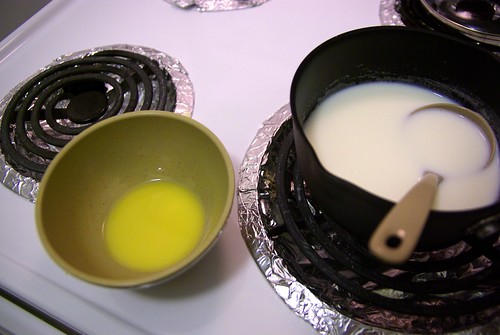
I added two spoonfuls of sugar. Then I cooled down the milk a little, before pouring it in the ginger juice.
I left it there for twenty minutes on the counter and the mixture had coagulated! Then, I remembered that the taste of something extremely smooth (“waat” in Cantonese) is still somewhat unusual for a Western-trained palate such as mine.
I think it was pretty well done anyhow as it was very smooth, the milk protein having separated from its serum and with the consistency of egg whites (it was way softer than jello, say). Apparently, some people say that it improves your skin! But how can a glass of milk, sugar and some ginger juice do that?
